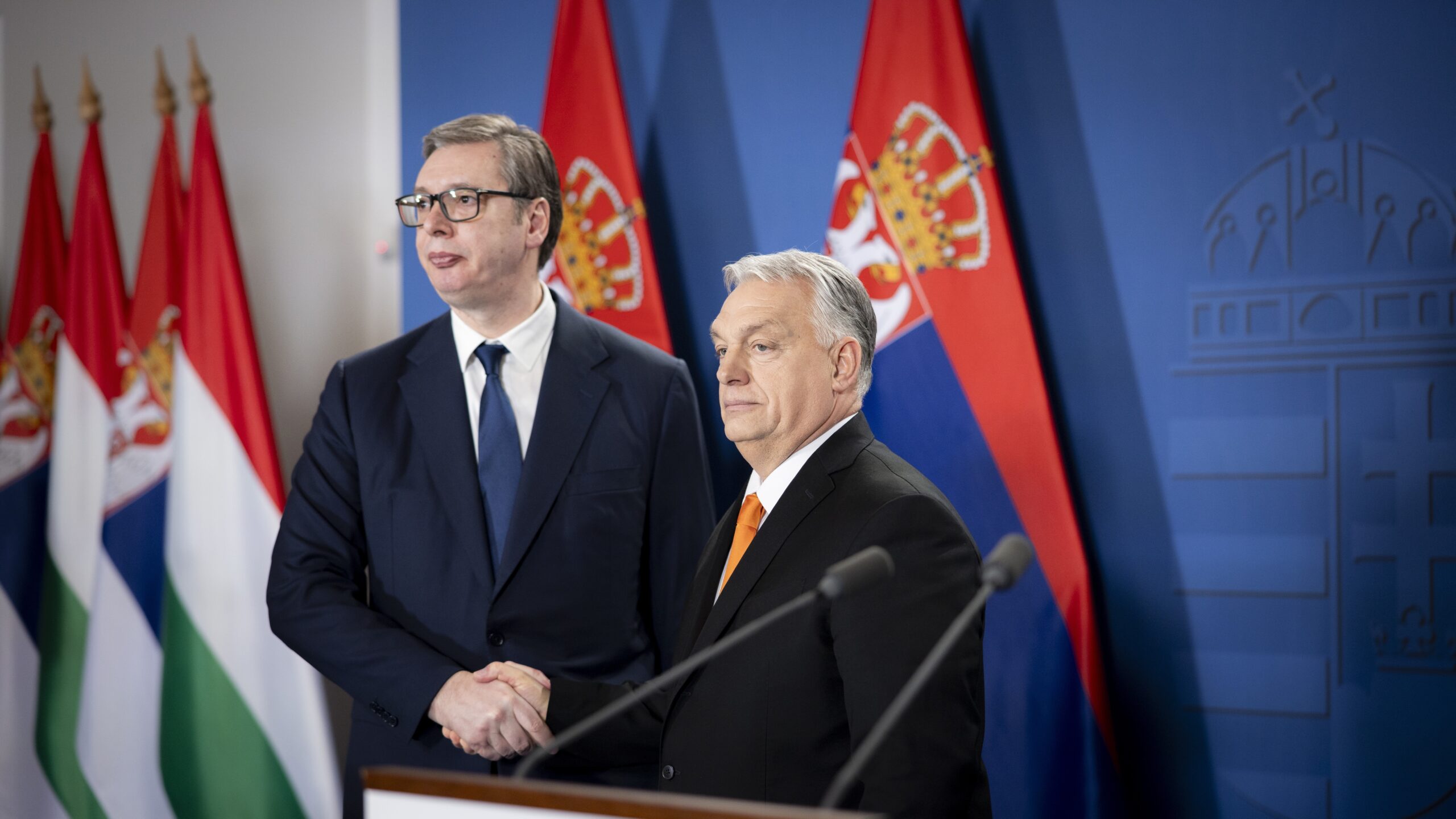Hungarian Prime Minister Viktor Orbán lauded Serbian President Aleksandar Vučić as the ‘champion of Balkan stability’ during a press conference in Budapest on Monday. Following bilateral talks, Orbán emphasized that Serbia’s stability is intrinsically linked to that of the Balkans, and that strong, decisive leadership is essential in ensuring the country’s resilience.
Earlier in the day Vučić was awarded Hungary’s highest state honour by the Hungarian President, a recognition of his role in fostering strong ties between the two nations. Orbán underscored the historical parallels between Hungary and Serbia, noting that their challenges have often aligned. He praised Vučić for recognizing this shared history and taking active steps to strengthen cooperation, particularly in the areas of migration policy, military security, and energy stability. Orbán highlighted that Hungarian energy security is deeply reliant on Serbia, just as Serbia depends on Hungary. He revealed that preparations for a 300-kilometre-long oil pipeline between the two countries are well underway. Once completed, the pipeline will significantly enhance energy independence for both nations.
The Hungarian Prime Minister also noted that in 2023 Hungary received a record-breaking 7.5 billion cubic metres of natural gas via Serbia—two billion cubic metres more than the previous year. Without these supplies, neither the Hungarian economy nor households could have been sustained. Additionally, discussions are ongoing to double the electricity exchange capacity between the two countries.
‘Orbán particularly praised Serbia’s ability to maintain a diversified economic strategy, noting that 40 per cent of its foreign trade occurs outside the European Union’
Reflecting on past difficulties, Orbán remarked that Hungary and Serbia have achieved these milestones despite external pressures and attempts at destabilization, including economic restrictions and the influence of non-governmental organizations. He expressed optimism, stating that the shifting global political climate now presents new opportunities for trade, investment, and border-region development.
Economic cooperation remains a key pillar of the relationship, with Orbán acknowledging Serbia’s impressive 9 per cent real wage growth and 4 per cent economic expansion. He described Serbia as one of Europe’s most successful countries, particularly for its ability to resist external pressures and avoid being drawn into ongoing conflicts.
Orbán particularly praised Serbia’s ability to maintain a diversified economic strategy, noting that 40 per cent of its foreign trade occurs outside the European Union. This balanced approach, he said, serves as an example for Hungary. Addressing concerns about regional instability, he reiterated his commitment to defending national sovereignty, stating that foreign interference in Serbia, Slovakia, or any other neighbouring country would not go unnoticed.
Shifting focus to broader geopolitical issues, Orbán argued that the resolution of the Russo–Ukrainian war will ultimately be shaped by negotiations between major world powers, rather than direct talks between Kyiv and Moscow. He lamented Europe’s diminishing influence in global affairs, criticizing European institutions for failing to take proactive steps toward peace.
According to Orbán, European leaders have remained entrenched on the side of war rather than pushing for diplomatic solutions. As a result, he warned that Europe will be left on the sidelines while global powers make key decisions on trade, technology, and energy prices—issues that will directly impact the continent’s future.
Closing his remarks on Hungarian–Serbian relations, Orbán invoked a line from the film Gladiator: ‘Whatever comes out of these gates, we've got a better chance of survival if we work together.’ This sentiment, he suggested, should guide both nations as they navigate an increasingly complex geopolitical environment.
Related articles:








